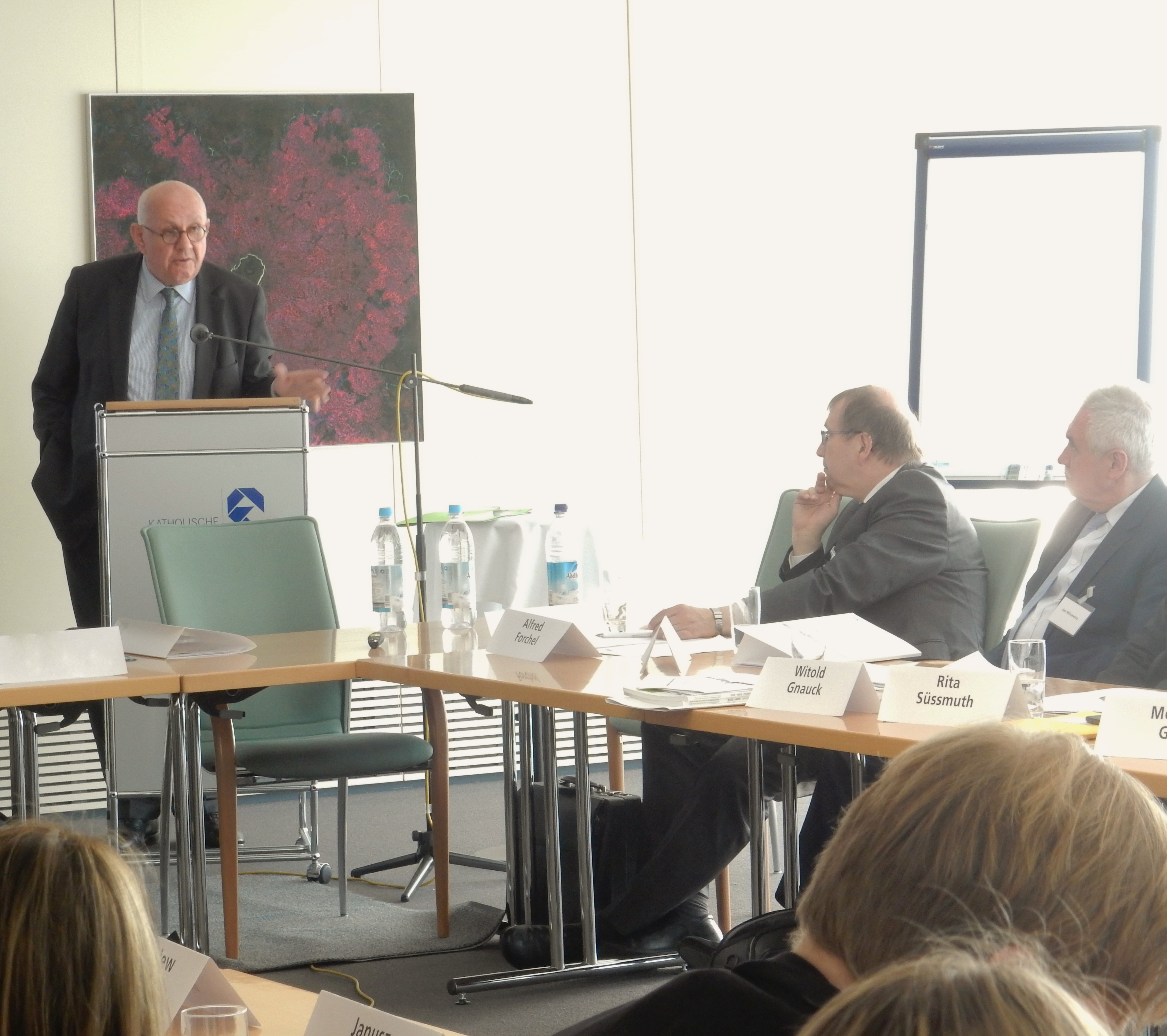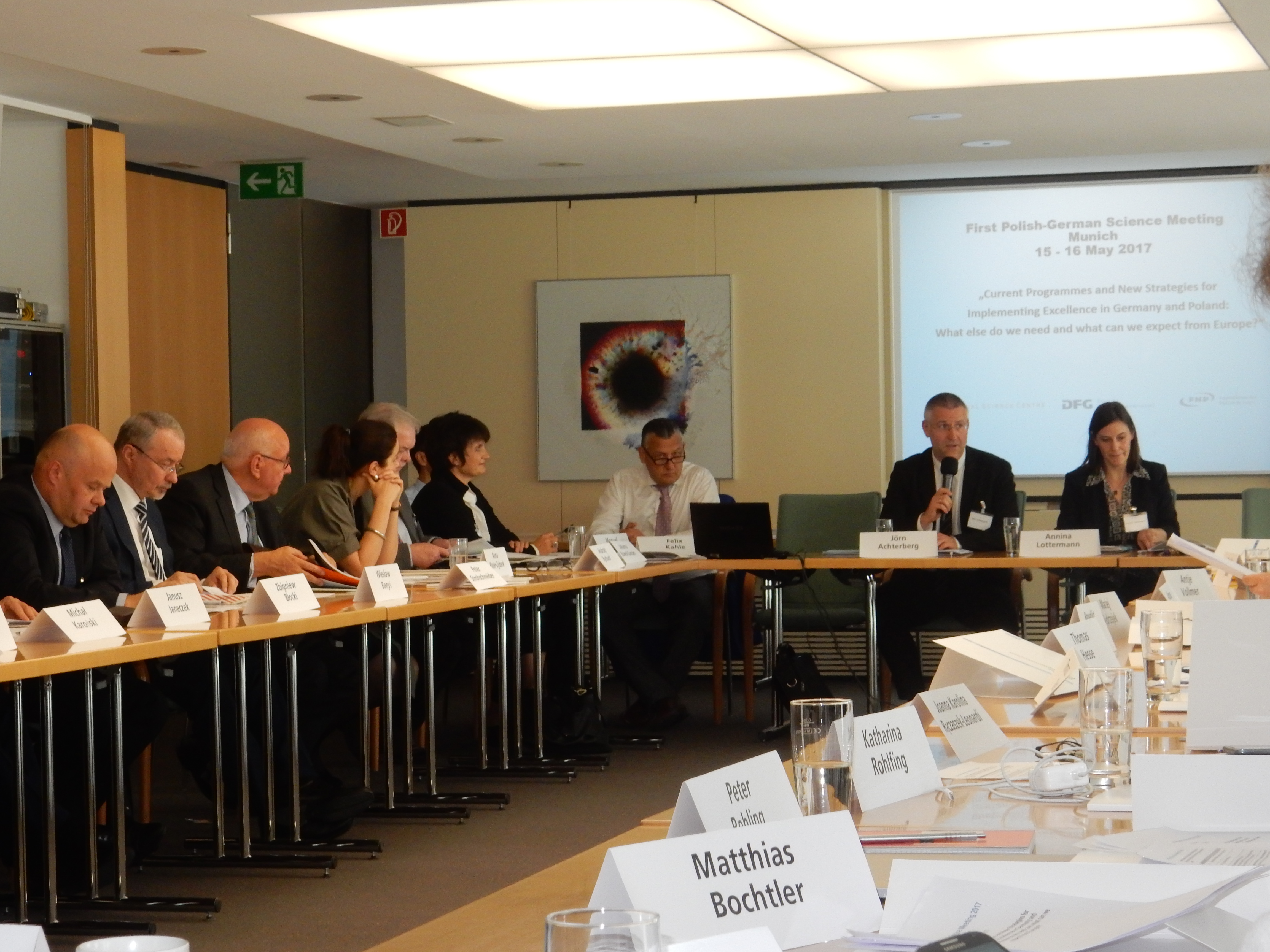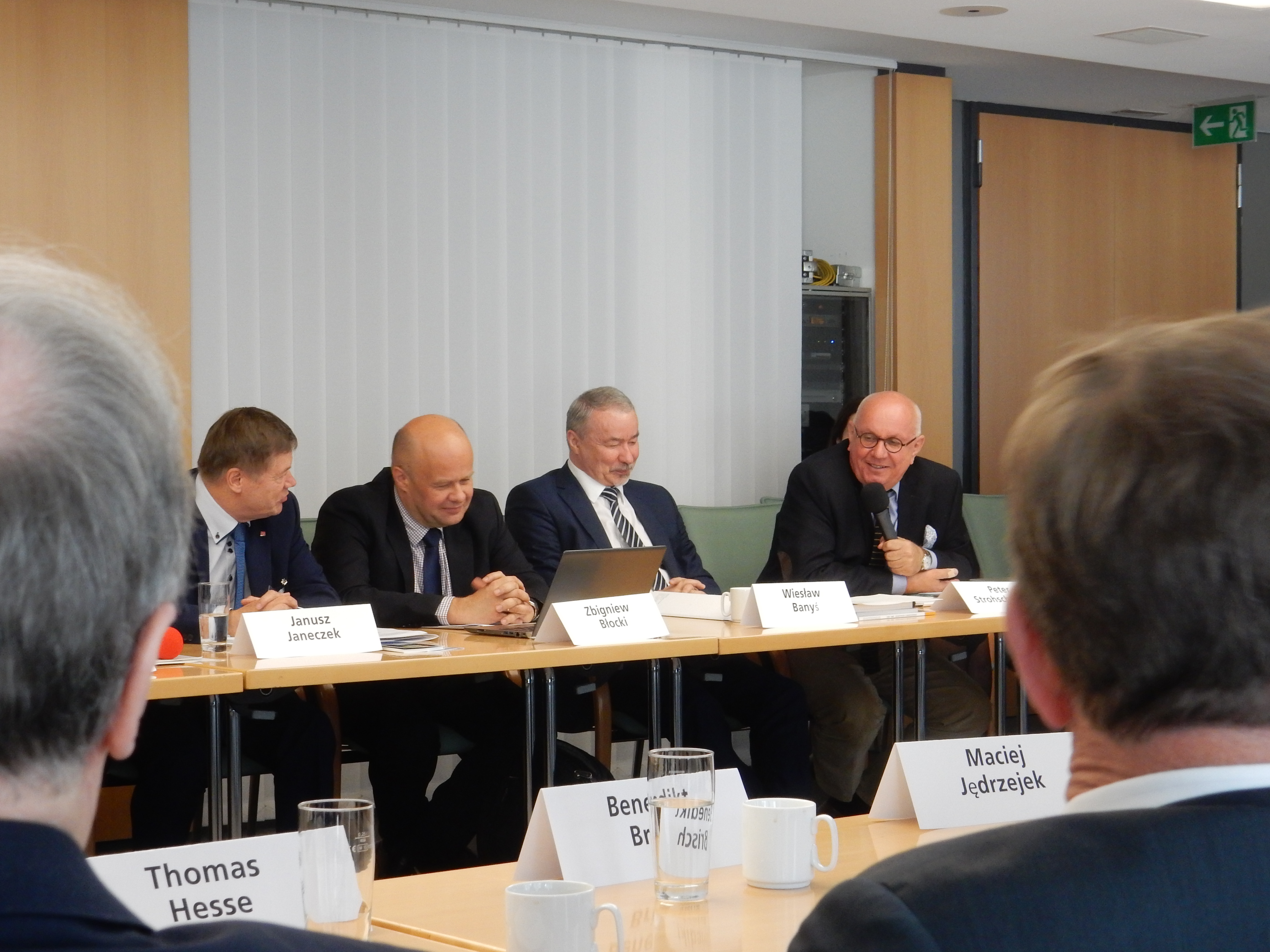The First Polish-German Science Meeting

Evening address by DFG President Dr. Peter Strohschneider
© DFG
Academic relations between the neighbouring countries of Germany and Poland have a long, rich and deep-rooted tradition. But until now, there has been no regular bilateral meeting format for everyone involved in the research process. To change this, in mid-May the DFG, the Foundation for Polish Science (FNP) and Poland’s National Science Centre (NCN) invited representatives of research, education, and research and funding organisations from both countries to attend a joint meeting.
The two-day event in Munich focused on discussion of current challenges in research as well as issues relating to research administration and new funding formats in international cooperation. Following this successful first event, the series of Polish-German Science Meetings is to be continued in years to come.
The first gathering of 45 representatives from different areas of the research systems in both countries was designed as a pilot project, with multiple discussion formats covering a wide range of topics.

Opening of the First Polish-German Science Meeting at Kardinal Wendel Haus, Katholische Akademie in Bayern
© DFG
On the first day, there was a workshop at which German and Polish researchers spoke about their practical experiences of bilateral research funding. In short statements, the research teams – who received funding through various programme lines – explained the added value provided by the international aspect of their collaboration, as well as pointing out some desirable features of research funding. For example, they commented positively on publications which appeared in both countries, access to enlarged collections of data and research infrastructures, and successfully proposed follow-up projects. However, they also identified additional needs in terms of flexible funding formats and the further development of existing programmes, especially with regard to early career researchers and interdisciplinarity of research.
Research managers from the major research institutions in Germany and Poland, such as the Fraunhofer Society, the Leibniz Association, the Helmholtz Association, the Max Planck Society, the Polish Academy of Sciences (PAN) and the National Centre for Research and Development (NCBR), as well as the DFG, FNP and NCN, responded in a ‘tour de table’ with the latest developments in their respective funding offerings. These included both new programme initiatives and new thematic focuses.

In conversation: DFG President Prof. Dr. Peter Strohschneider with the honorary president of the Conference of Rectors of Academic Schools in Poland, Prof. Dr. hab. Wiesław Banyś, NCN director Prof. Dr. hab. Zbigniew Błocki and the chair of the Council of the NCN, Prof. Dr. hab. Janusz Janeczek (from right)
© DFG
In the evening, DFG President Professor Dr. Peter Strohschneider gave a speech in which he touched on social and research-related debates in both countries in the Europe of today. He reflected on how freedom of research can be maintained on the basis of a shared European set of values, even in a Europe challenged by populism.
The second day followed on from the two parts of the first day’s programme, with the aim of deriving strategic positions from the workshop and the address. Discussion focused on questions such as how scientific excellence can be further promoted in both countries, what excellence means, and how research in Germany and Poland should be supported in years to come. As well as the leaders of the research organisations, representatives of the university associations of both countries and the President of the German-Polish Science Foundation (DPWS), Prof. Dr. Rita Süssmuth, contributed to the debate. Valuable input was also provided by the international expertise of the German Academic Exchange Service (DAAD) and the Alexander von Humboldt Foundation (AvH). Researchers and research managers contributed to the discussion too, identifying particular features and differences in the two systems. The result was a roundtable discussion that brought out different perspectives, needs, competencies and, above all, the need for more and deeper collaboration.
The conclusion reached was that the new event format was extremely stimulating for all participants. German-Polish academic collaboration continues as strong as ever, but due to various factors, including the specific historical context, calls for special funding formats and cooperation structures. Plans are already being made for the next meeting, which will be held in Poland.